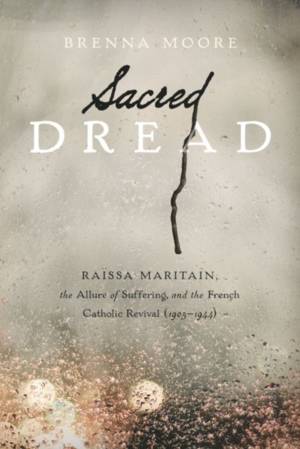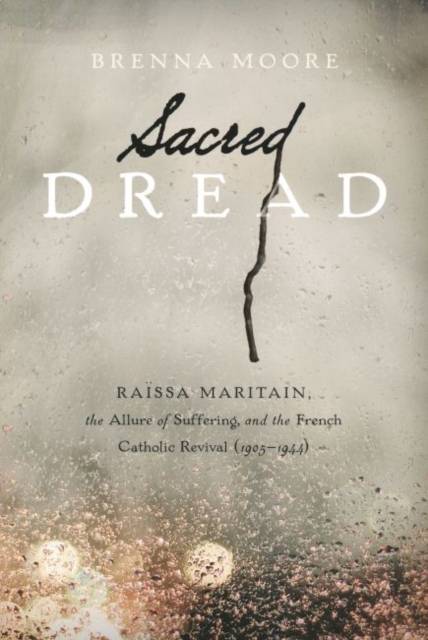
- Retrait gratuit dans votre magasin Club
- 7.000.000 titres dans notre catalogue
- Payer en toute sécurité
- Toujours un magasin près de chez vous
- Retrait gratuit dans votre magasin Club
- 7.000.0000 titres dans notre catalogue
- Payer en toute sécurité
- Toujours un magasin près de chez vous
Sacred Dread
Raïssa Maritain, the Allure of Suffering, and the French Catholic Revival (1905-1944)
Brenna MooreDescription
In early twentieth-century France, a vast network of artists, writers, and religious seekers were drawn to Roman Catholicism's elaborate panoply of symbols centered on suffering. A preoccupation with affliction dominated the movement now known as the French Catholic revival, or the renouveau catholique--considered a watershed in the history of the modern Catholic Church and the "golden age" of French Catholicism. In Sacred Dread, Brenna Moore examines the life and writings of Raïssa Maritain (1883-1960), one of the few women to contribute to this intellectual movement. Moore explores the reasons why Maritain, a nonpracticing Jew, was attracted to this suffering-centered theological imagination and how she and other advocates transformed it in the wake of the Holocaust. Sacred Dread offers readers a new understanding of a radical Catholic piety that was embraced by a wide range of pre-war intellectuals.
By combining late-modern French intellectual and cultural history, Catholic theology, biography, and an analysis of Maritain's published and unpublished writings, Moore also identifies two major factors in this Catholic revival--gender and Judaism--that have not received adequate attention. Discourses of femininity and Judaism were central to the French Catholic articulation and idealization of suffering. Moore argues that Maritain, as a Jewish convert and one of the few women in this intellectual community, embodied symbolic associations of suffering, holiness, women, and Jews; indeed, for her husband, godfather, confessors, friends, and godchildren, Raïssa Maritain was herself the articulation of this abject ideal. Caught as she was in a web of meaning, Raïssa Maritain was an intellectual whose legacy deepens but also subverts the centrality of femininity and Judaism in French Catholic elaborations of suffering.
Spécifications
Parties prenantes
- Auteur(s) :
- Editeur:
Contenu
- Nombre de pages :
- 308
- Langue:
- Anglais
Caractéristiques
- EAN:
- 9780268035297
- Date de parution :
- 17-01-13
- Format:
- Livre broché
- Format numérique:
- Trade paperback (VS)
- Dimensions :
- 152 mm x 226 mm
- Poids :
- 521 g

Les avis
Nous publions uniquement les avis qui respectent les conditions requises. Consultez nos conditions pour les avis.






